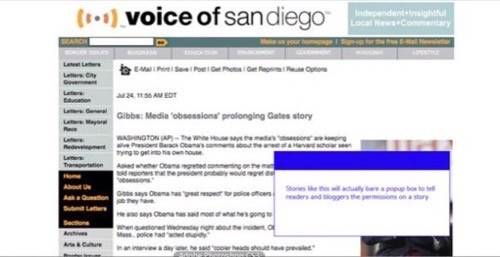The Associated Press is set to create a news registry to protect their online content from copyright violations. The organization amassed critics on the issue after a number of DMCA take down notices were issued to bloggers who had linked to the AP, used their headlines or paraphrased AP stories. One such blogging network, the Drudge Retort, was asked to remove seven items containing AP quotes. Nevertheless, after prominent bloggers created an uproar on the matter and claimed fair use on the content, the AP backed down. In a conversation with the New York Times, AP spokesman Jim Kennedy said, “We don’t want to cast a pall over the blogosphere by being heavy-handed, so we have to figure out a better and more positive way to do this” It appears the news registry is the AP’s answer.

After seeing the AP apologize for its initial DMCA take down to the Drudge Retort, bloggers may have expected a simple set of blogging standards; however, under the new registry, the organization goes much further. The AP’s content will be attached to a digital-permissions framework and monitored for its usage. This means that every time a blogger uses AP materials, they’ll be alerted to its permissions and someone will be watching to see that it’s being used correctly. AP posts will actually bare pop ups with permissions and sources. The system also allows the organization to gain proof of what it defines as violations in order to enforce its copyright policies. And how policies are enforced will most definitely determine if Kennedy’s comment about heavy-handedness was bona fide. A slide show of the system is available here.
While this is perhaps one of the first major news organizations to codify and automate the tracking of copyright violations on the web, several large organizations employ automated tracking to protect their content from misappropriation. In particular, photo organizations such as Getty and Corbis have worked with PicScout’s Image Tracker for a number of years to seek out and confront copyright infringers. However, where Getty and Corbis can make clear claims to their licensed stock photography, the AP’s claims to news-related content is blurry. Still, the blogosphere will have to tread lightly when it comes to using AP-related sources.






















